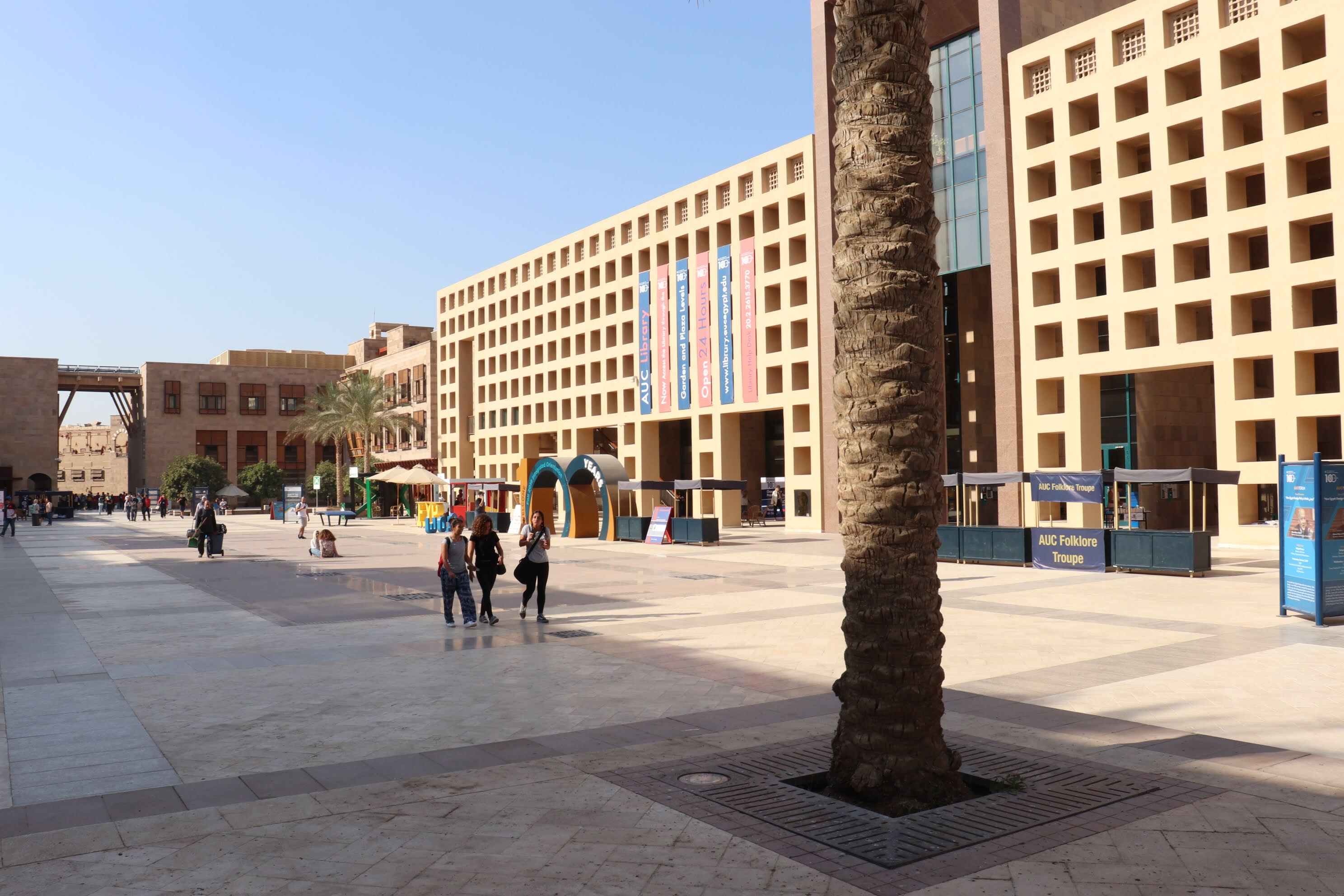Students Worry about Privacy Breaches during SU Election
By: Reem Elmaghraby and Neda Taher
@reemelmaghrabyy @NedaHaamed
When the SU elections came to an end on April 16, a number of students came forward to complain about the methods used by the campaigners to gain more votes.
According to an email sent by the Student Life Office, Ahmed Saeed and Youssef Gomaa were announced as next year’s president and vice-president, respectively, winning a total of 1990 votes, while Adbelmoniem Mansour and Sara Essam received a total of 1579.
Both tickets received a total of four violations resulting in the loss of 80 votes each.
The elections this year were unique since they took place online, which raised a lot of challenges for both the candidates, the supporting campaigners, and student voters.
Rather than just bumping into people in Bartlett Plaza at AUC as has been the case for years, both camps had to come up with alternate ways of campaigning and canvassing people to discuss the election plans and convince them to vote for their candidates.
Adham Amer, an undeclared freshman, said that he was contacted by a person who claimed to be his classmate and asked him to vote for Saeed and Gomaa. However, he realized that the person was lying about being with him in class.
“They do not take no for an answer. Even on the phone calls, they don’t stop. The only way you get them to stop is saying I voted for them or the opponent,” Amer said.
A campaigner who spoke to The Caravan on the condition of anonymity confirmed that campaigners from both teams relied on contacting people through phone calls and social media, but some students viewed this as a breach of privacy.
Many people who posted their complaints on Rate AUC Professors, a Facebook group for AUC students, voiced their concerns to The Caravan about being spammed by campaigners and in some instances, rude behavior.
Mohammed Khaled, an undeclared freshman, said that he received five calls and had to change his number on WhatsApp until the elections were over in order to avoid any more texts.
“They woke me up at 8:30am. I had midterms and I didn’t get much rest,” Khaled said.
Helena Abdelnasser, a Visual Arts senior, claimed that Mansour and Essam’s campaigners were people she knew in her class, and they sent her messages as early as 10am to get her to vote.
For Marie Moussa, a Visual Arts senior, it was a bit more bizarre.
“A phone number that wasn’t saved on my mom’s phone called her and turns out, it was a campaigner who was trying to get my mom to vote not knowing that she isn’t a student,” Moussa said.
The Caravan spoke with the candidates about these campaign methods.
Saeed said that he doesn’t believe that his campaigners spammed students in the form of phone calls and texts.
“However, in some cases maybe the campaigner is a friend of the voter so he/she calls him several times to guarantee that he/she voted,” Gomaa explained.
Mansour admitted that his supporters tried to decrease the number of campaigners spamming voters by giving them pointers on their WhatsApp groups on how to treat the voters, and what to do when difficult situations arise.
“Usually we have workshops, but due to the situation [quarantine and an emptied campus], we make sure on our [WhatsApp] groups to let them [campaigners] know what they can and can’t talk about. We’d explain the electoral code, explain what anti-campaigning is, how to speak [to voters],” Mansour said.
Both candidates compiled spreadsheets that contained students’ names, majors, and numbers. However, both teams explained that they only use it to find duplicates and get an accurate estimate of where they stand in the elections.
According to the campaigners on both teams, they usually don’t first secure consent from the students about being added to the spreadsheet.
The candidates said that every campaigner was given their own spreadsheet where they added the people who they got to vote for their candidate of choice. A trusted campaign official would compile it into one big spreadsheet that the other campaigners didn’t have access to.
Gomaa said that they do not call any number that’s on the spreadsheet and some campaigners do not write all the categories associated with the voters.
“For the numbers, some people wrote and others didn’t, but the numbers are used only in the filtering to not duplicate names of two students […] We are not using them for any other purpose,” Gomaa said.
But Mansour explained that only the candidates themselves were allowed to contact students on the spreadsheet and only if referred by a campaigner.He also mentioned that they would never use it to call random people and that after elections are over, the spreadsheets are destroyed.
“The purpose of the spreadsheet is to find duplicates and to know where we stand in the elections. That’s it […] One person was in charge of compiling all the information into one sheet and the information never went to anyone else,” Mansour said.
A campaigner for Saeed and Gomaa stated that after seeing people complaining about being spammed on Rate AUC Professors, she instantly went to her spreadsheet and deleted all her friend’s numbers in fear that they could also be spammed.
The Student Court investigated violations that occurred during the election from both candidates, said Associate Court Justice Zeyad Shoeib, a Mechanical Engineer senior.
He added that violations are confidential and that the violations that were referenced on Rate AUC Professors were taken under consideration.




